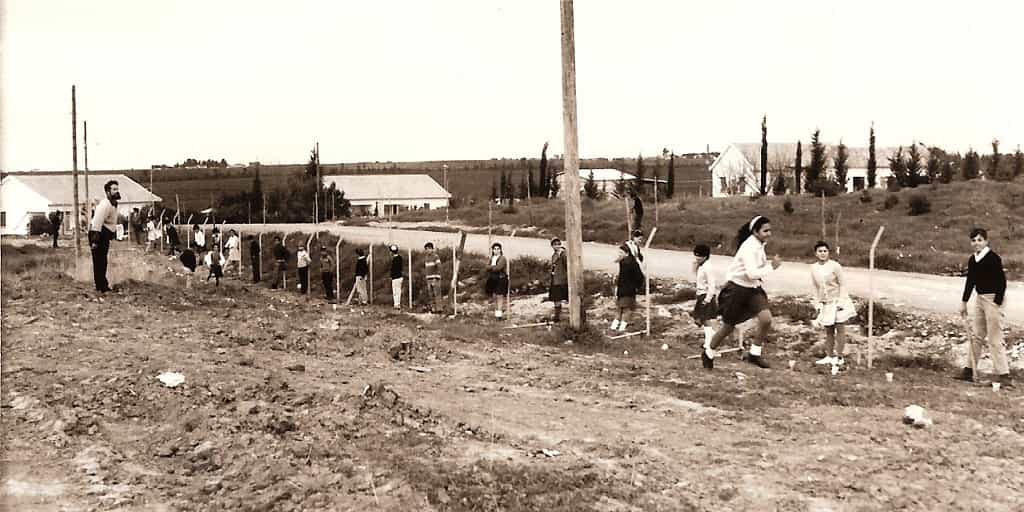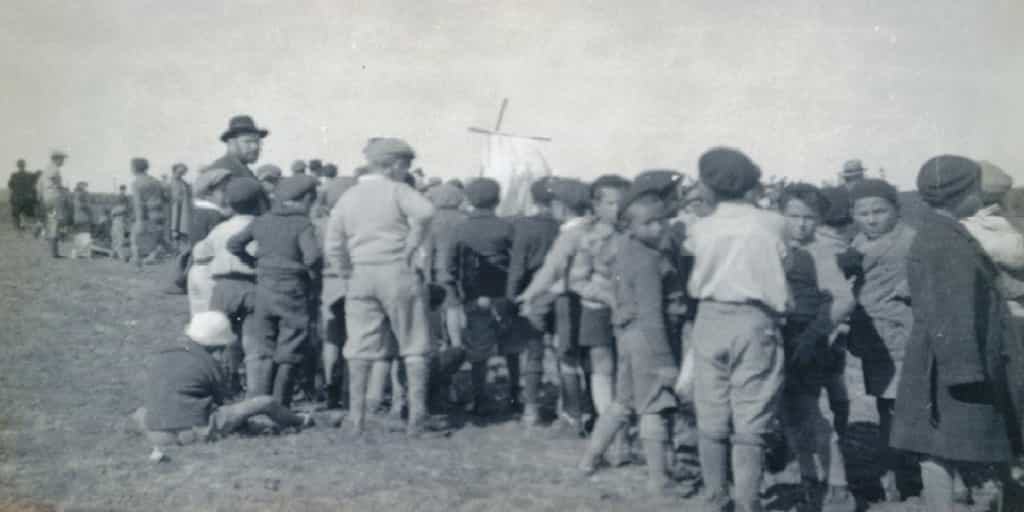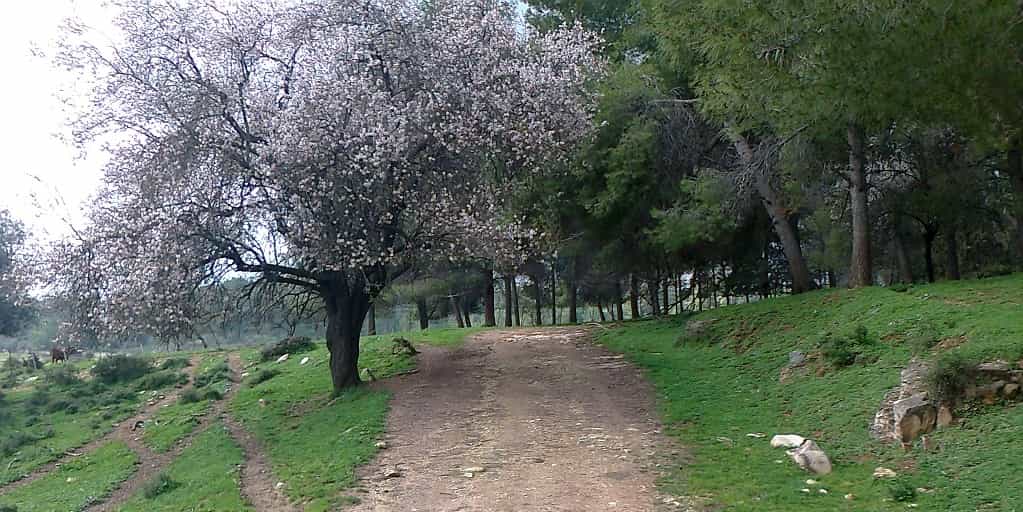This week we celebrated the holiday of Tu B’Shvat, commonly called the Holiday of Trees. It is a holiday that signals the beginning of spring and trees beginning to bear fruit. Where does it come from? It is mentioned in the Talmud (Rosh Hashanah 2a): “Beit Hillel says that the ‘new year for the trees’ is the 15th of Shevat- Tu B’Shvat.” So it is the 15th day of the Hebrew month of Shvat, and is one of four new years within the Jewish calendar (Rosh HaShanah, Tu B’Shvat, Passover, and the 1st of Elul (the tithing of cattle).
So what do we do?
We eat fruits of the seven species of Israel: wheat, barley, olives, dates, grapes, figs, and pomegranates, as mentioned in Deuteronomy 8:8. This is because Tu B’Shvat marks the end of winter, and the beginning of spring. Therefore, it is customary to have a Tu B’Shvat Seder. The Seder was developed by kabbalist Arizal, and is a meal of 10 fruits and 4 cups of wine.
In Judaism, there is a blessing for food. Therefore, each kind of food has its own blessing: fruit, meat, cheese, other. We say a lot of blessings over fruit throughout the day.
It is also the New Year for determining the tithes. What does that mean? There is a seven- year cycle for agriculture according to Jewish Law. Certain years farmers must earn a coin, or profit, for their produce. The seventh year is a rest year, during which we cannot work the land and its produce. This is done until today, and funnily enough this year is that seventh year, or in Hebrew shmita.
As a result, one more practice to mention. Tu B’Shvat is considered the new year for determining the Torah’s agricultural laws in Israel. One rule in Jewish law is called orlah, or not eating the fruits from a tree for the first three years after it’s planted (Leviticus 19:23). Orthodox Jews pray for a beautiful etrog for the upcoming Sukkot. Some save the etrog from the previous Sukkot to eat during Tu B’Shvat. What is an etrog? It is a citrus fruit Jews use during the holiday of Sukkot (the holiday of booths that takes place in the fall).

Tu B’Shvat and Zionism
With the rise of Zionism in the late 19th and early 20th centuries, there was a strong emphasis on the Jewish people’s connections to the land and the natural world. Zionist pioneers, with financial support from the Jewish diaspora, planted trees to mark special occasions in the land of Israel. With this view, the Jewish National Fund reforested, de-swamped, and turned the land of Israel green.
There is a comparison in Deuteronomy 20:19 that says ‘A person is like the tree of a field…’ What does this mean? We all have the opportunity to grow, learn, and improve. Each year of growth is like another branch in ‘our tree.’ Every time we establish a connection with our fellow human, every time we invest in our relationships with our friends, family, community, etc., we establish ‘our roots.’ Now we can decide what kind of ‘tree’ we want to be. We can be a tree that provides shade, comfort, and peace to others. We can help others, provide for our families, and comfort those in need.
OR… we can be a tree that allows our roots to come up to the surface and crack, we can be tilted trees, not produce leaves, not provide shade and comfort. People can allow our roots, our human connections to fail. We can be selfish. Tu B’Shvat is a good time to take a step back and think about how we are doing, and how we, as trees, are growing. We have the opportunity to ask questions that can relate to fruit in our life. How can I live a ‘fruitful’ life? Am I connected to a warm and nurturing community?

What is special about Tu B’Shvat in Israel?
In Israel, it is a day of environmental awareness. Many Jews plant trees in Israel in honor holiday. Today, we relate Tu B’Shvat to green technology, recycling, and environmentalism. So I would like to take some time to talk about environmentalism in Israel. Israel is ranked as the second highest Cleantech country in the world, according to World Wildlife Fun. Over 83% of Israeli homes use solar energy for hot water, the highest percentage in the world. Furthermore, Israel treats 92% of its wastewater and reuses 75% of it in agriculture, also an incredibly high rate. In addition, The country has a reverse osmosis facility in Ashkelon, and is building a second facility in Ashdod. And speaking of Ashdod, Ashdod has a city- wide compost system for it’s half a million residents to use.
An Israeli company helped develop the technology of drip irrigation, and therefore helped to implement it throughout the world. An Israeli company, based in a religious Kibbutz, is one of the largest producers of natural pesticides in the world. Unique in Israel, the desert is shrinking, rather than expanding. Israel is the only country that came into the 21st century with a net gain in its number trees. In the past 50 years, Israel has planted over 260 million trees. Remember this is something we do on Tu B’Shvat! The CO2 emissions are 11.02 per capita, which are half that of the United States. As of 2013, Israelis recycles 20% more of their plastic bottles than Americans, even though recycling has started relatively recently in the country.

Conclusion
In conclusion, the holiday of Tu B’Shvat is a special time we can think about the environment and greenery throughout the world. However, it doesn’t mean we can’t think about it during the rest of the year. We can always be thinking about how to make the world better environmentally. And so, as a result, I wish you all plenty of time and insight to change the world; your world! What’s your world? It can be your community, house of worship, family, campus. Start an easier way to recycle plastic on your campus. Raise awareness. Think about how to make the world green! And with that, have a great weekend!





